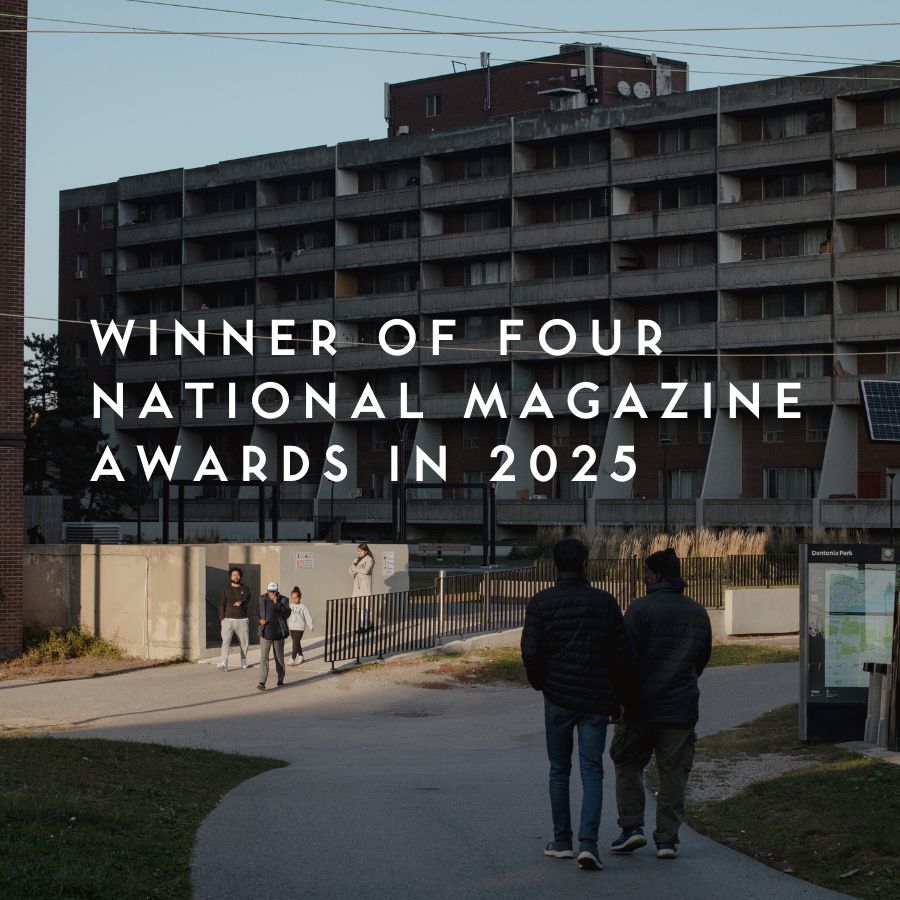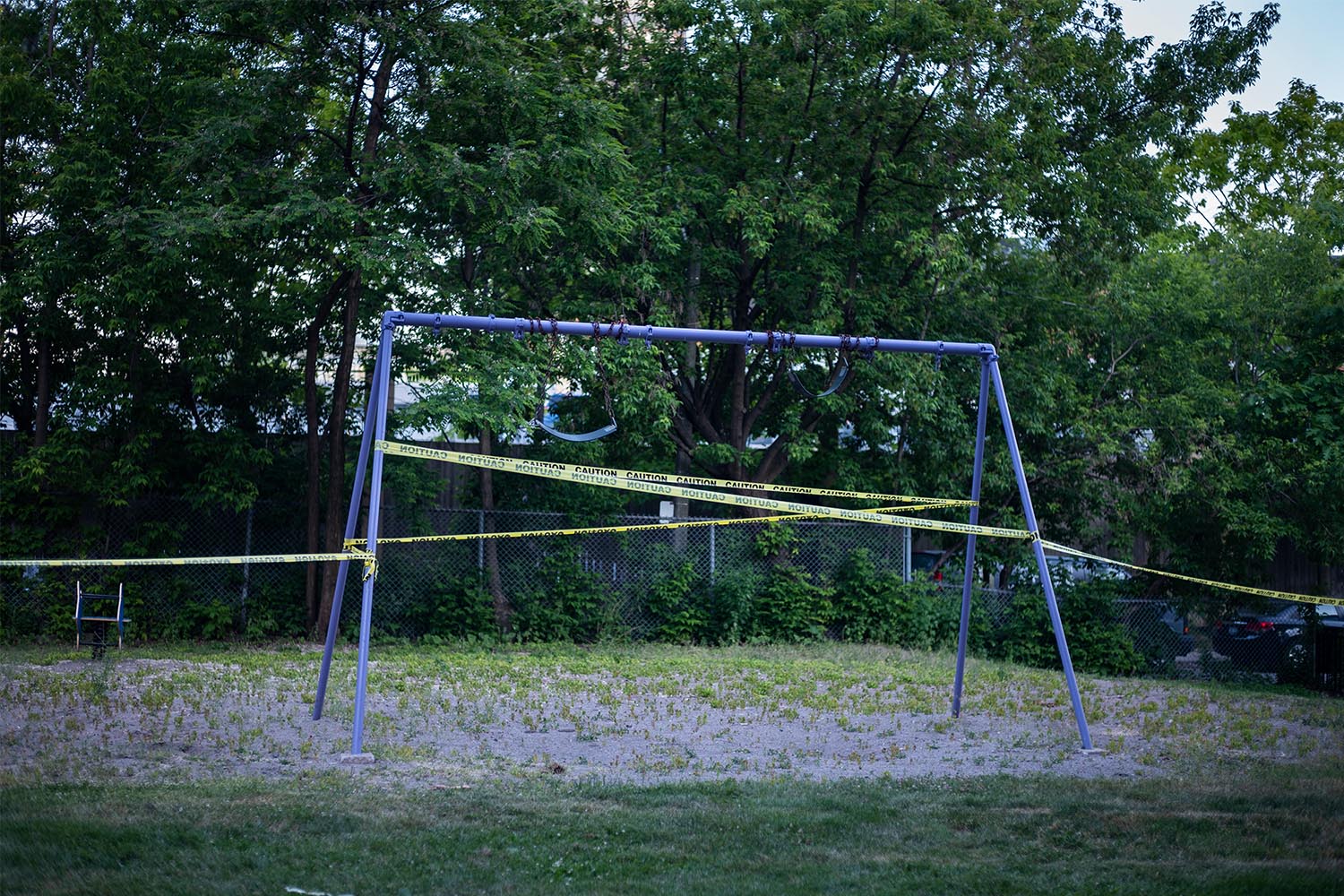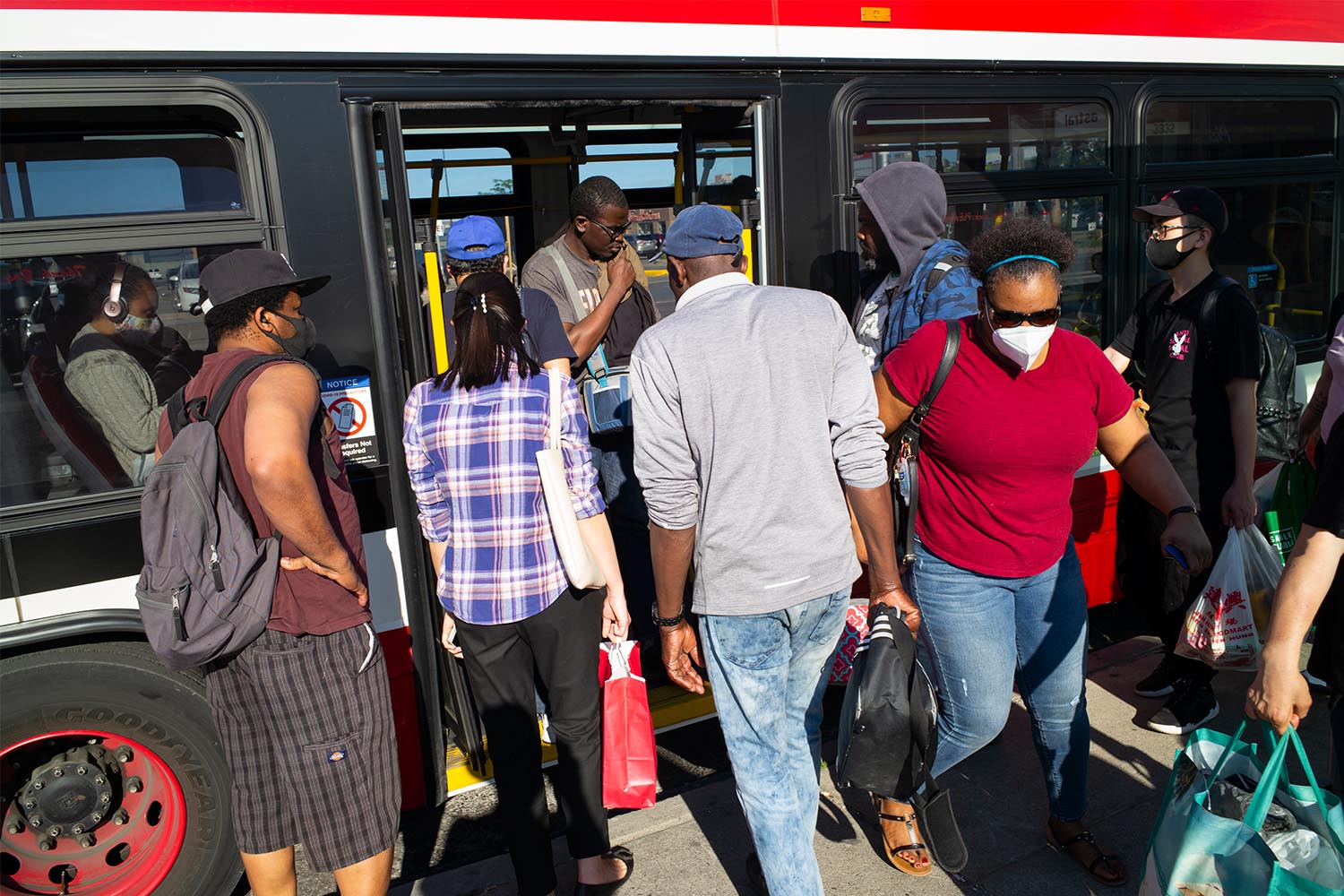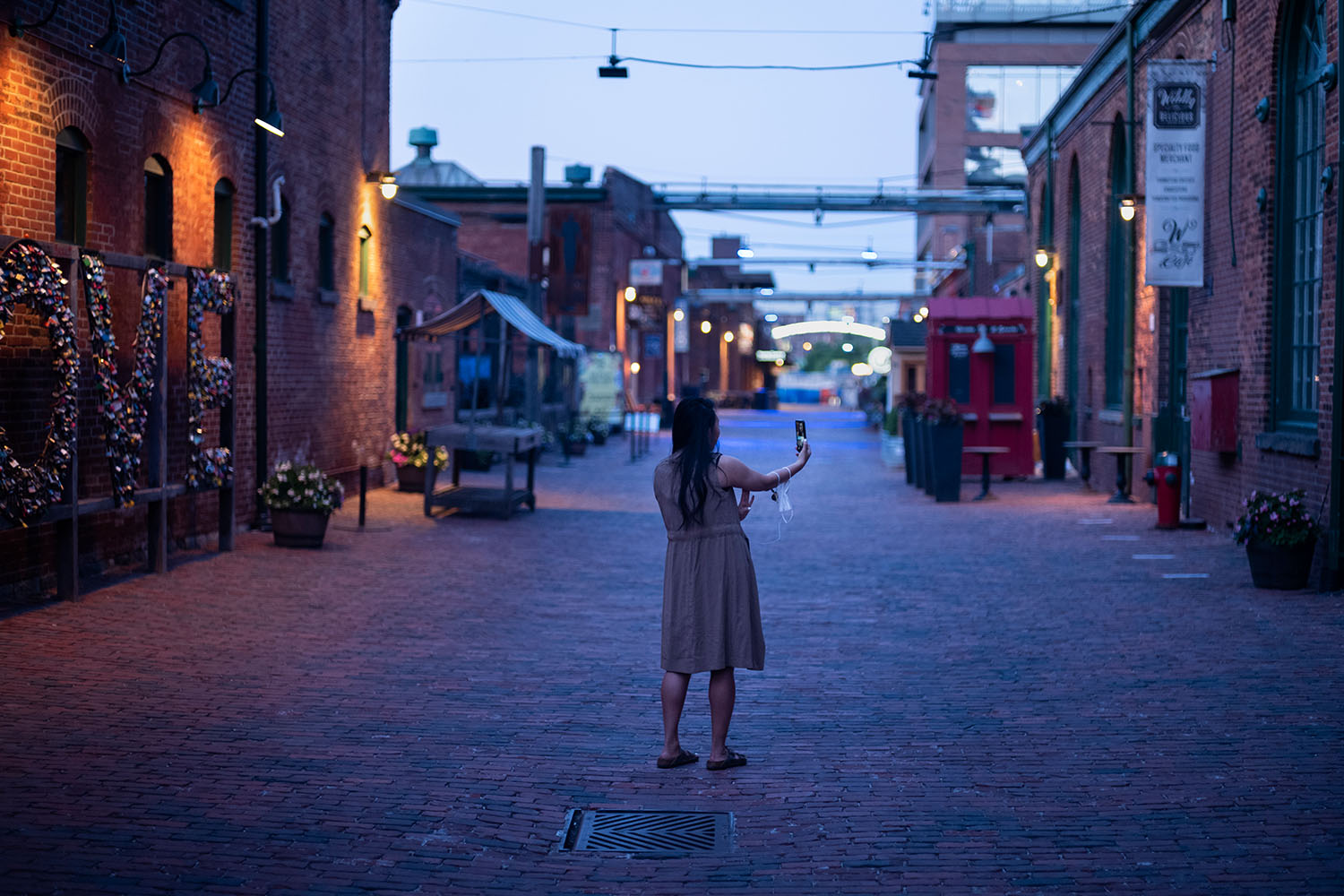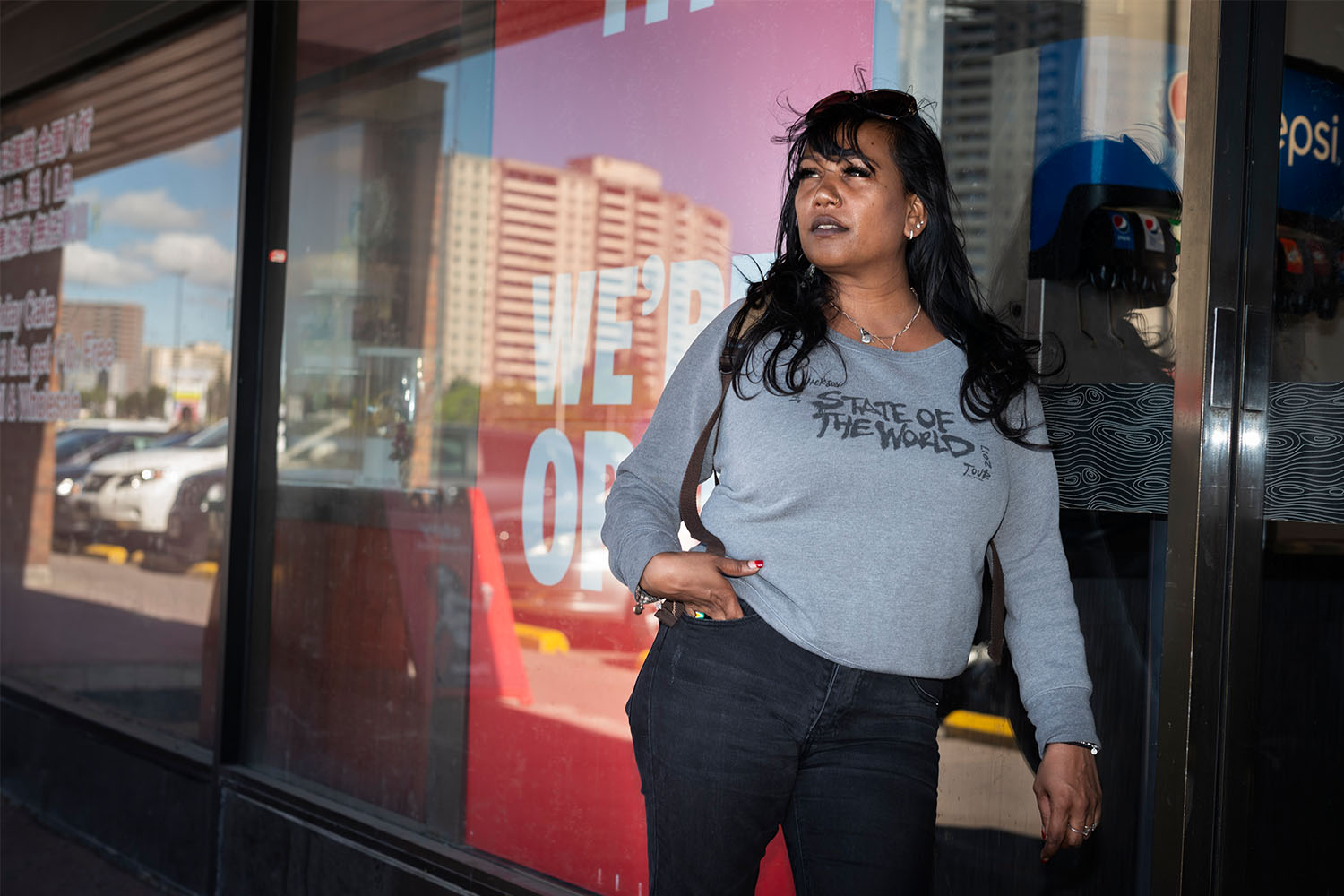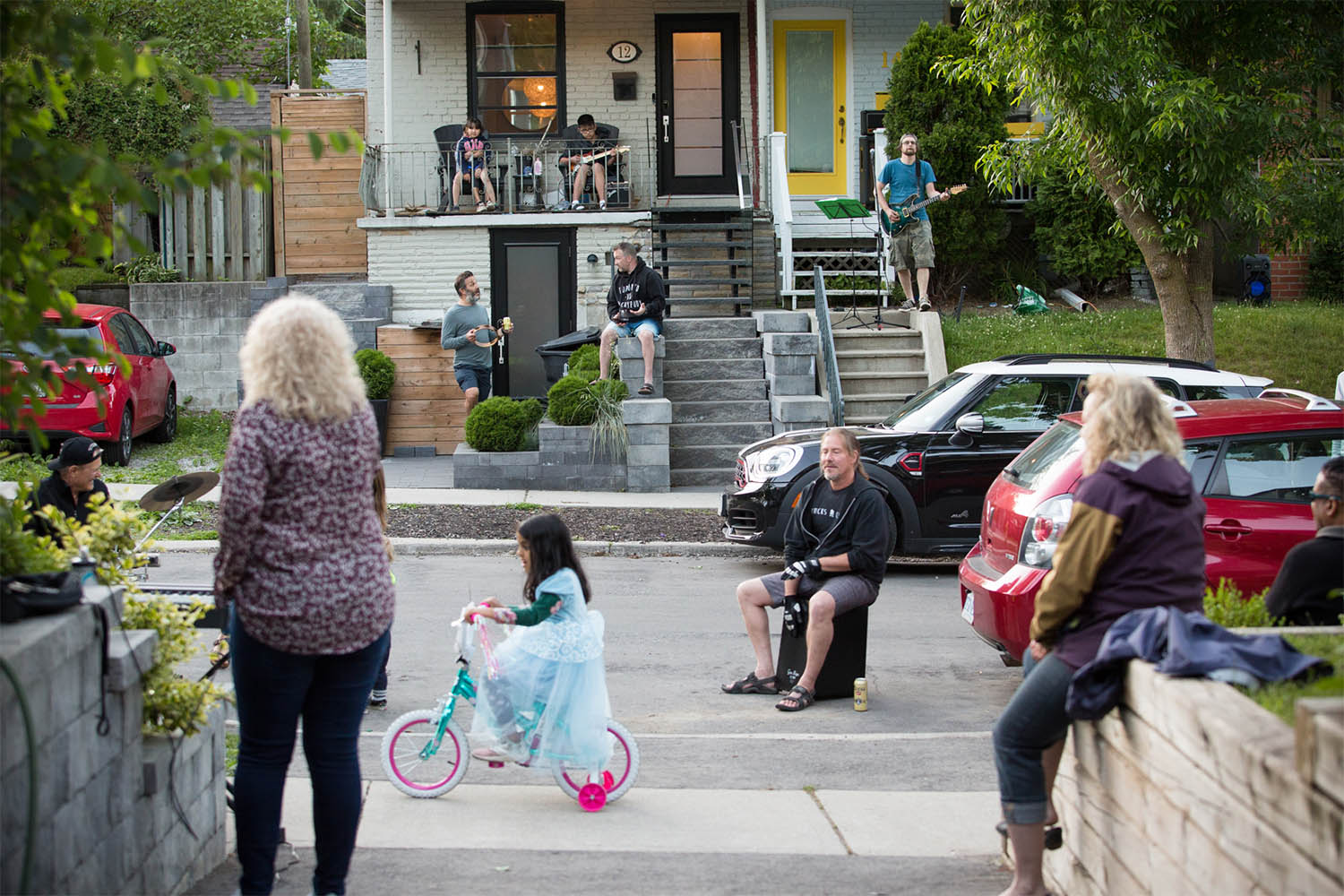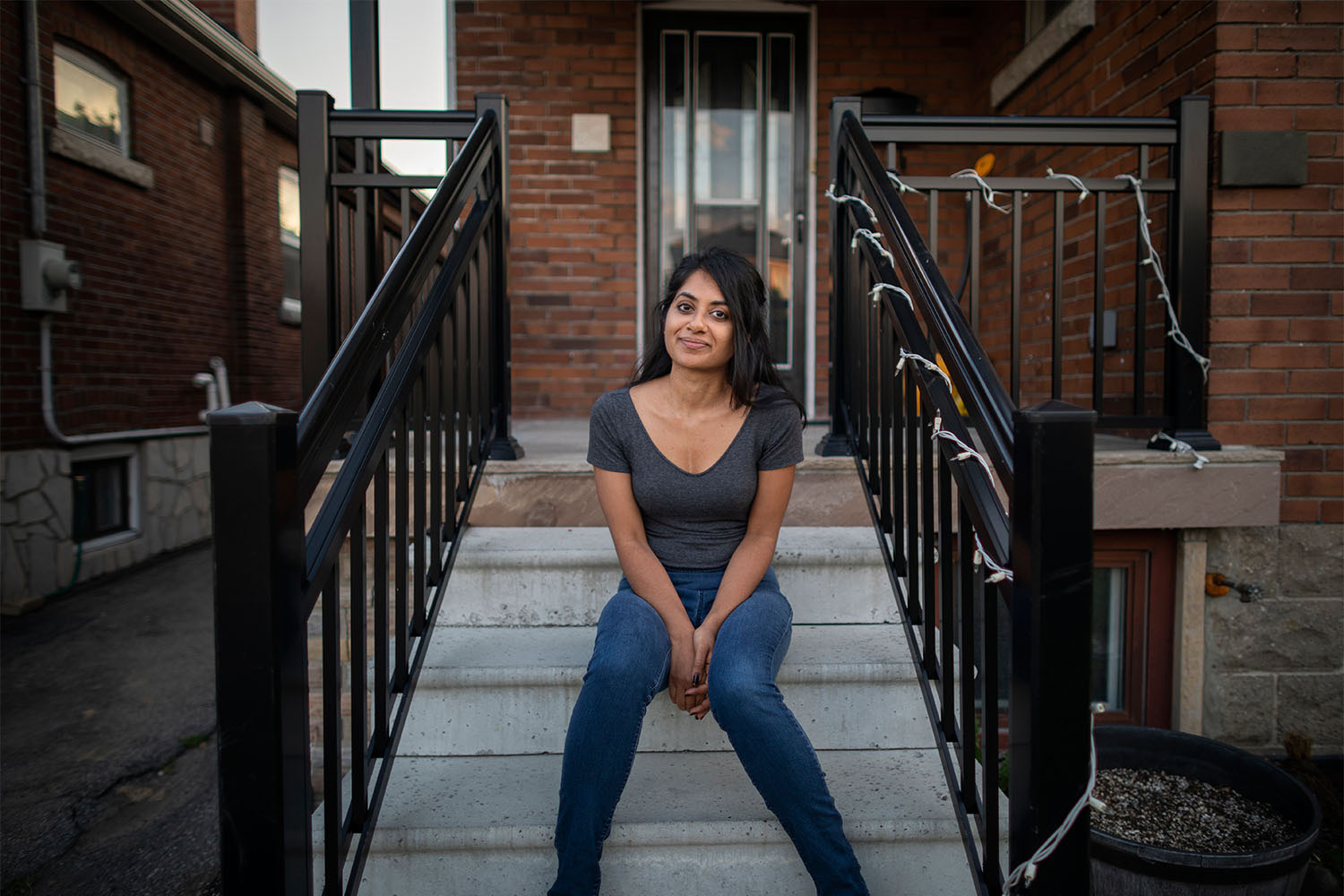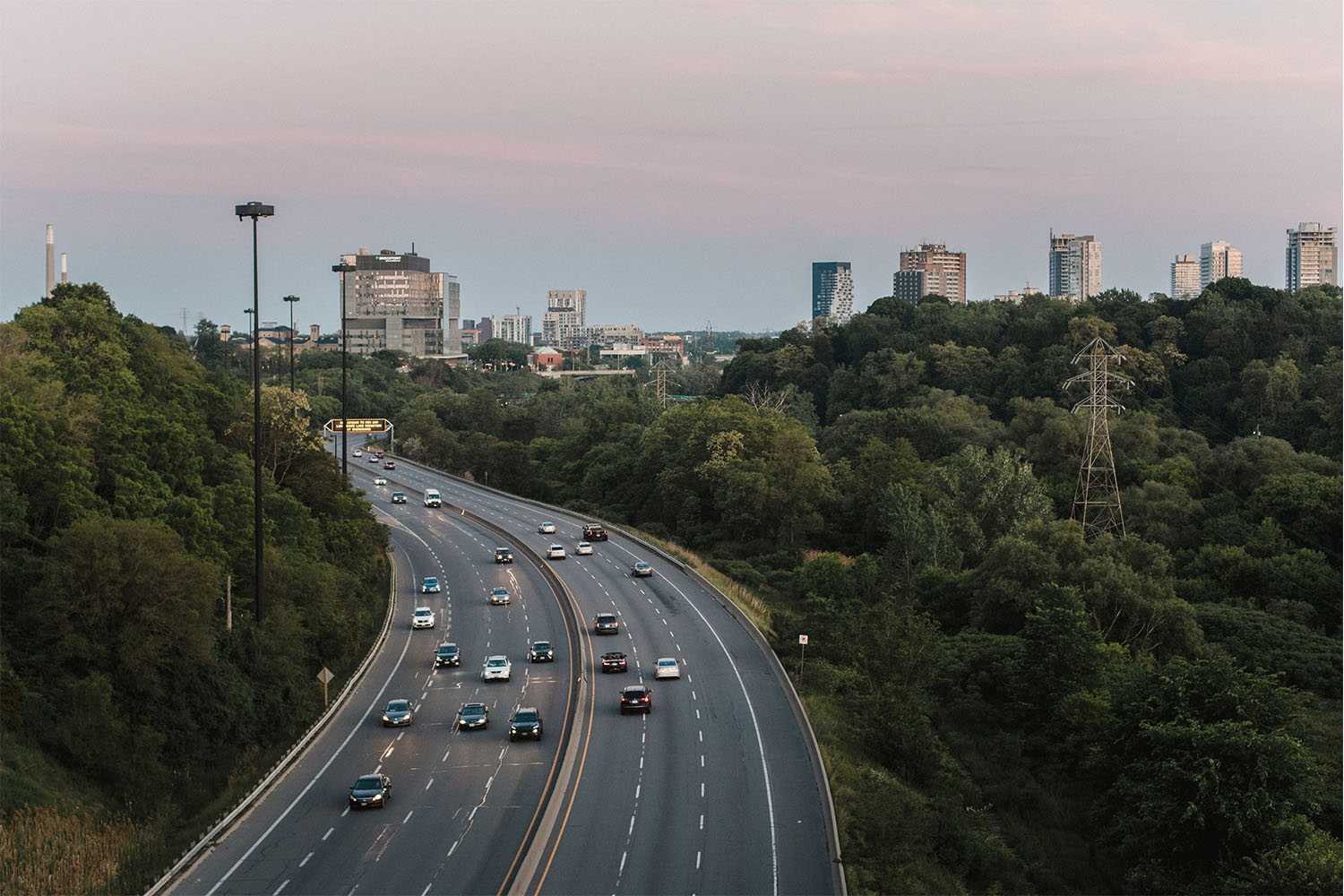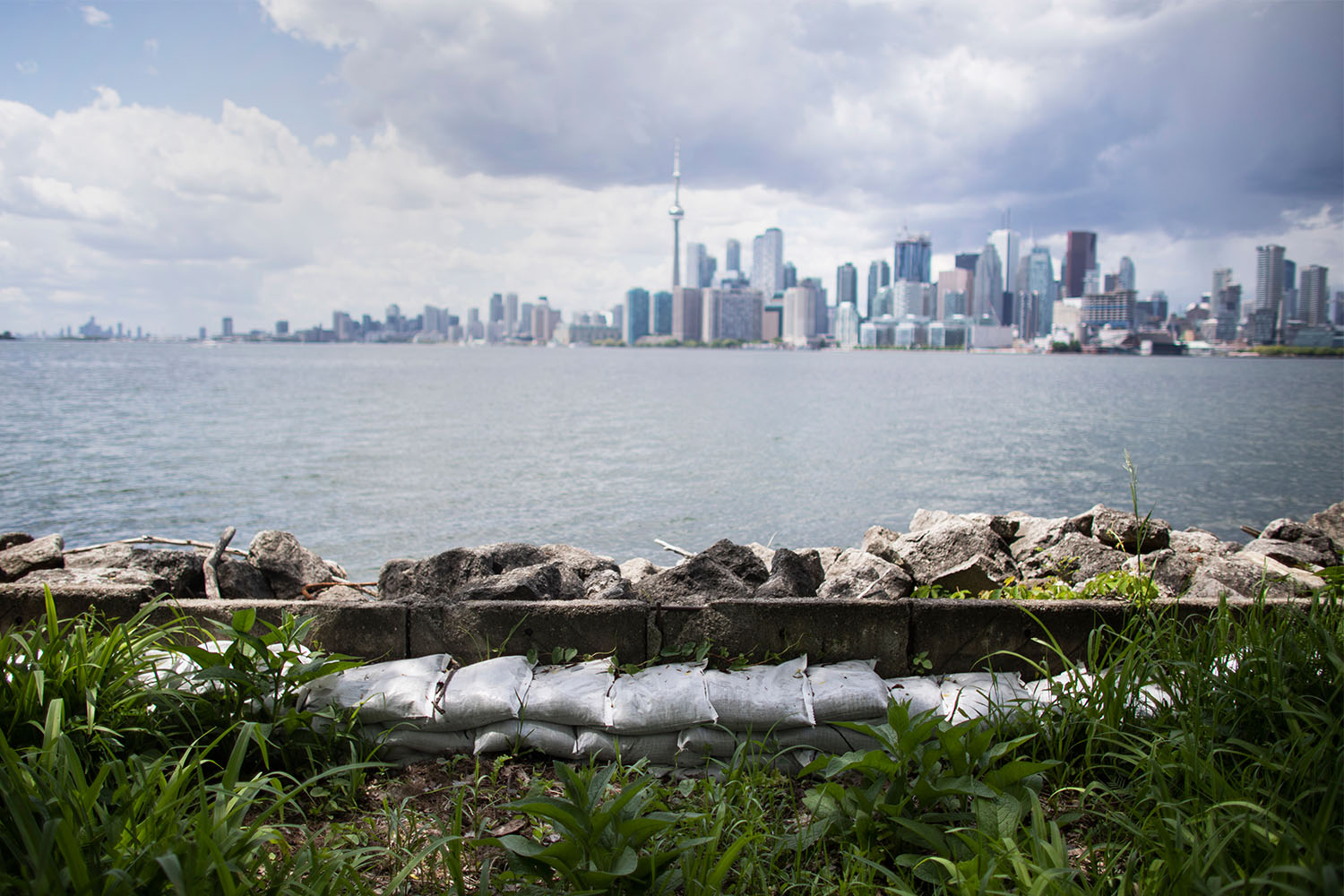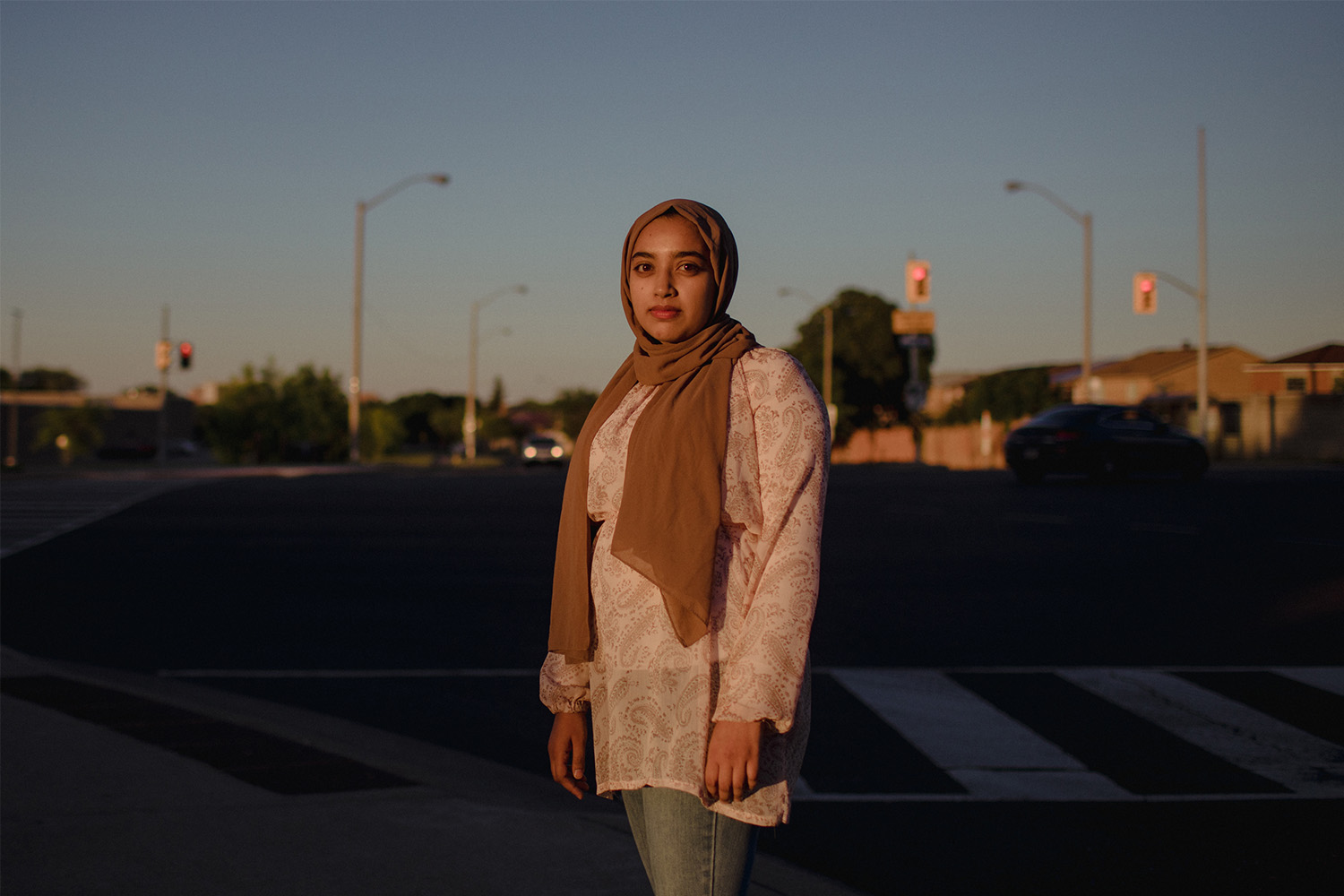
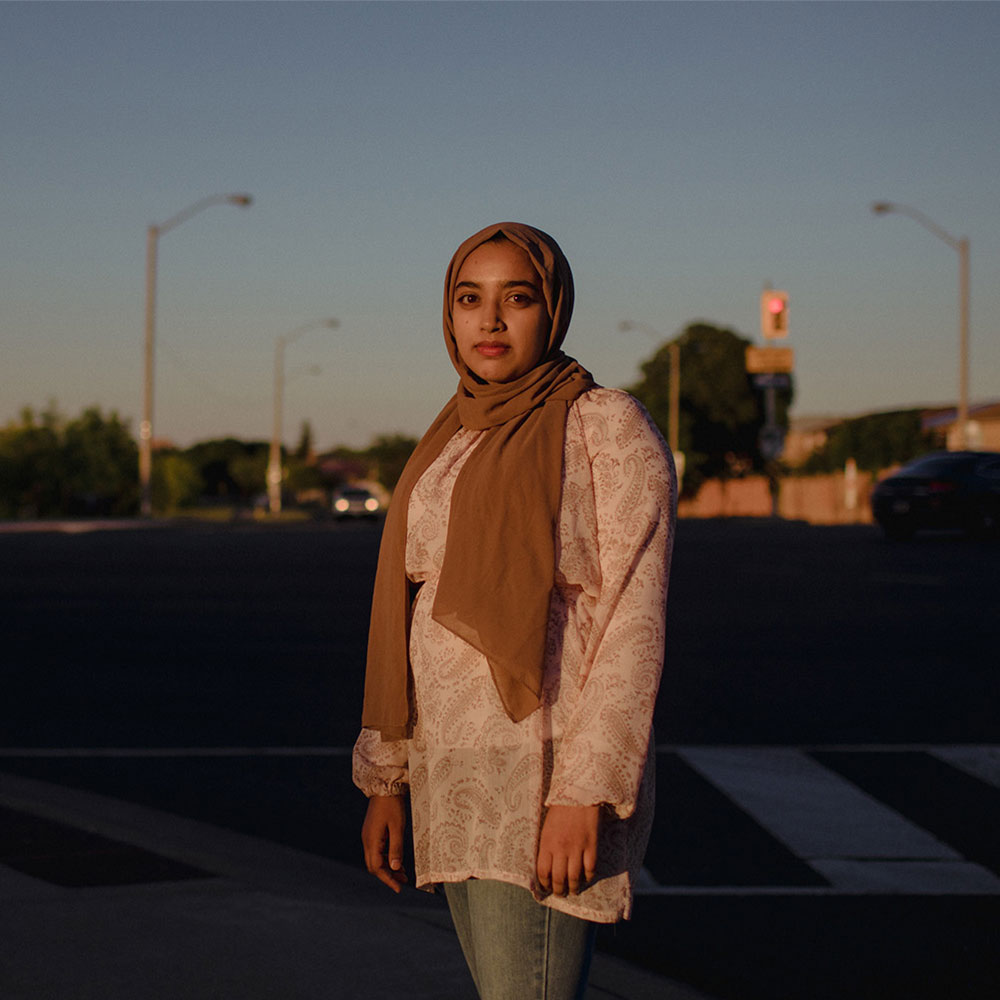
Two years ago, my dad took his last breath and everywhere I went in my neighbourhood reminded me of him.
Passing the local mosque brought tears to my eyes as I pictured his casket being wheeled out to be buried. The Tim Horton’s across the street conjured memories of him sitting at a table, a bright grin forming when he caught sight of me bringing him a donut. Wherever I went in Scarborough—from a trip to Port Union to a visit to the local Sri Lankan grocery store for some coconut milk powder—brought memories crashing in like a tsunami. The places in Malvern and Scarborough felt like a mockery of my grief.
Going downtown was my only escape. As a college student in journalism, downtown was where I wanted to be. Running out the door with some crappy coffee in my thermos, I’d jump on the bus and blast my music in my ears. Rushing down the stairs at Kennedy Station, I’d wait on the packed platform, hop on the train, and happily leave Scarborough behind. The city core was an amplification of my neighbourhood. The buildings were taller, the chatter was louder, and the streets were far more crowded. But most importantly, it was an escape from my grief.
Three months into a pandemic, I wish I could slip back into my routine of escaping downtown. But here I am, stuck in Malvern.
I was raised in this Scarborough neighbourhood in the north-east end of Toronto. It’s much quieter and more secluded than the busy city. Growing up, everything was within walking distance. Just a block away from my house was my small elementary school, and just beyond that were the small ethnic stores and the local Food Basics. A block the other way was the high school and the Malvern Town Centre, the small mall where teenagers would grab lunch.
It was common to leave Malvern to find something fun to do. Teens would hop on a bus and go to the Scarborough Town Centre to catch a movie and shop at the bigger mall. My family would drive down to the Bluffs to take a stroll under the evening sky, my dad and I continuously cracking jokes, letting laughter guide our way. It was the norm to believe that my future was among the skyscrapers that towered over the streets downtown.
When the world went into lockdown and I stopped going into the city for school, I had to find other ways of escaping my grief. Those first couple of weeks, I’d get dressed in my casual home-wear and make my way down the carpeted stairs, claiming the dining room as my space to study so none of my siblings would bother me. I’d sit in the dining room on the leather chair from the time the sun rose to the time it set. My hands would ache from all the schoolwork I forced myself to do to keep the memories from rushing back.
Escaping was easy when the world was going at full speed and I was able to pull away from my grief. But now the world is at a red light.
After about a month in quarantine, I sat in that same spot under the dim dining room light and I said a little prayer before submitting my final assignment. Closing my laptop, I felt relief wash over me as I looked out the window to see the moon. Soon enough, a ripple of panic formed as I realized what this meant. No more school meant no more temporary escape. And just like that, my dad came back to invade my mind once again.
Sitting cooped up in my house brought back memories of the days just after my father’s death, when my small, cozy home held my entire neighbourhood, paying their respects for our loss. At that time, I wasn’t too fond of it, but now I wanted that company more than ever. Today, when people lose family members, they don’t have the comfort of crowded rooms of mourners paying their respects. Messages from my relatives about losing their own loved ones popped up on my WhatsApp, and all I could do was send a quick message showing my love and prayer for them, along with a heart emoji.
Looking for a distraction, I began scrolling through my social media platforms as I lay in bed wrapped up in my blanket. I read posts about “using this time to reflect and tackle the problems I haven’t been able to get to” and rolled my eyes. I read stories about life downtown. Apparently people were clapping, singing from their balconies, riding bikes. I saw people saying the world had come together to support one another. I read messages that promised “you are not alone.” It may have been true, but it was far from what I felt. There are parts of the suburbs where it may be more lively, but in my area, now more than ever, it’s a ghost town.
One evening, trying to shake that upsetting feeling, I get out of bed, get dressed, and decide to go on a walk. I check my reflection in the mirror, making sure my mask is securely on my face and my hijab is in place, and follow my mom outside.
It’s a Sunday evening and no one is out. Neighbours aren’t chatting with one another. Children aren’t chasing each other, playing until their parents call them in for dinner.
We walk down the street and turn into the little catwalk leading to the playground. Passing by a couple who are heading home, I smile at them, forgetting the mask hugging my face. I see the crinkle at the corner of their eyes and it warms my heart. Slowly my vision blurs, and I see my dad sitting on the bench, smiling. Blinking twice, he leaves, but he reappears soon enough.
Dad keeps popping up, to my left and my right, not leaving my sight. Even the birds chirping sound like him calling my name.
“Let’s take another path,” I tell my mother as my eyes well up. We turn down another street, and I silently pray that he doesn’t follow me. The intersection at Markham Road and Nugget Avenue is so empty it looks unfamiliar. Usually the sound of cars fills the air, but today I only hear a light breeze. Looking towards the mosque, a big white building with the prayer times posted on an electronic sign, I remember the last time I saw my father there. “I’m exhausted,” I say to my mom.
Coming home, I feel hopeless. I’m stuck, with no place to hide. When he passed, he left an ache within me. And with quarantine, that feeling is now projected onto the streets. The neighbourhood is empty, a blank canvas, and my mind is quick to paint a picture with my memories of him. It is at this very moment I realize I can’t hide any longer.
Escaping was easy when the world was going at full speed and I was able to pull away from my grief. But now the world is at a red light. If quarantine in my quiet, deserted neighbourhood has taught me anything, it’s that today I have nowhere to escape. All I have left to do is to turn around and face my grief head on, bravely.
